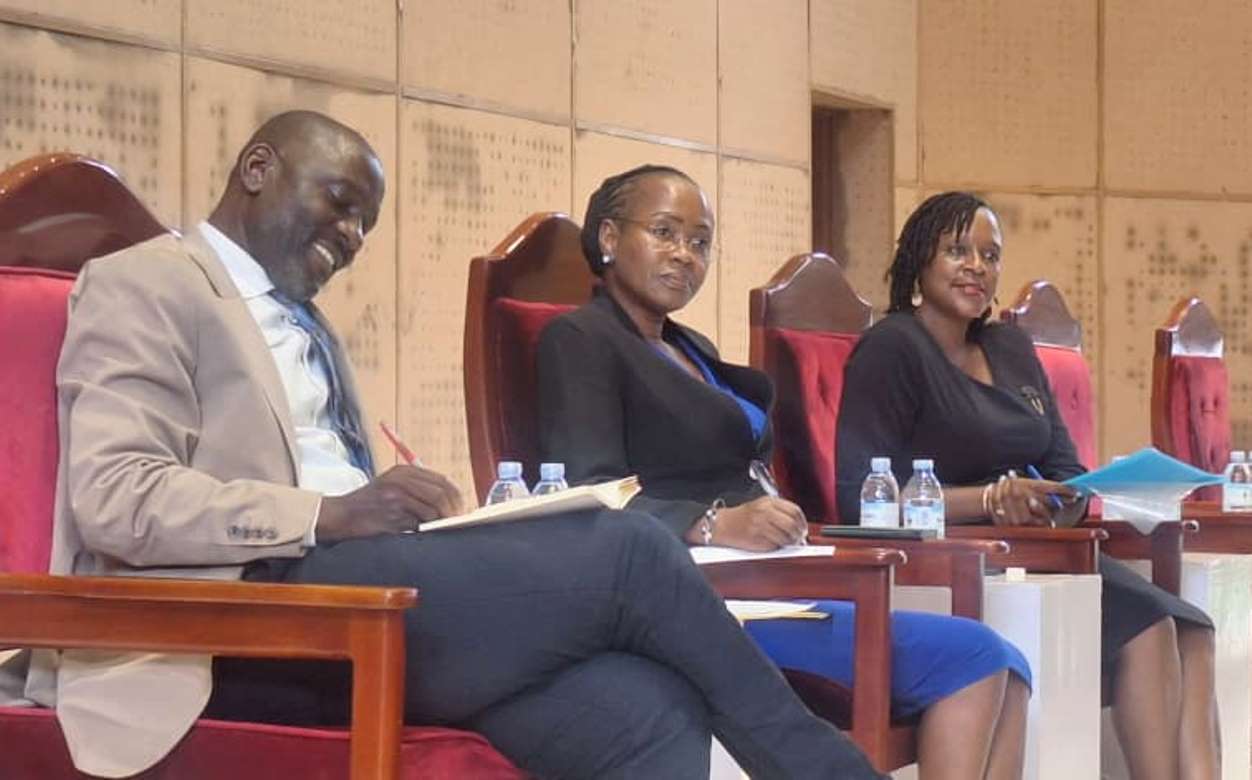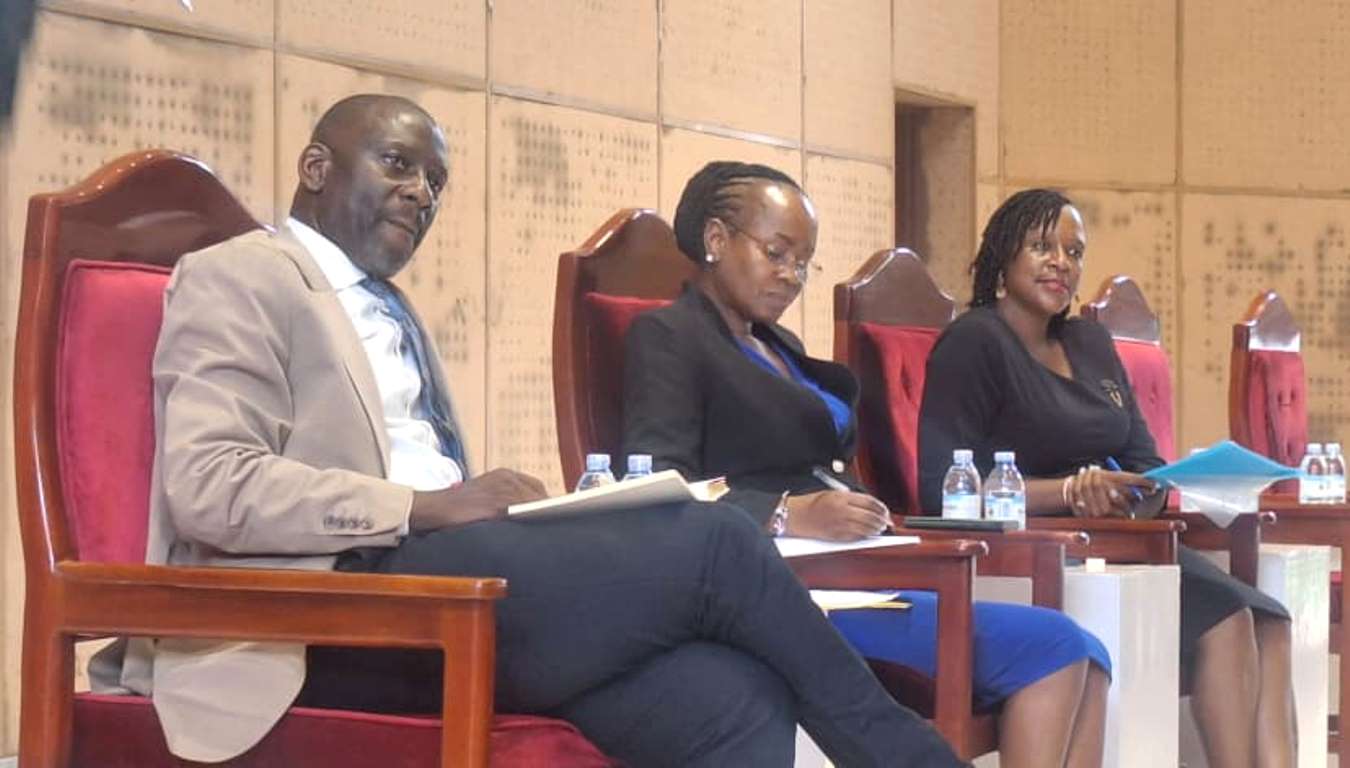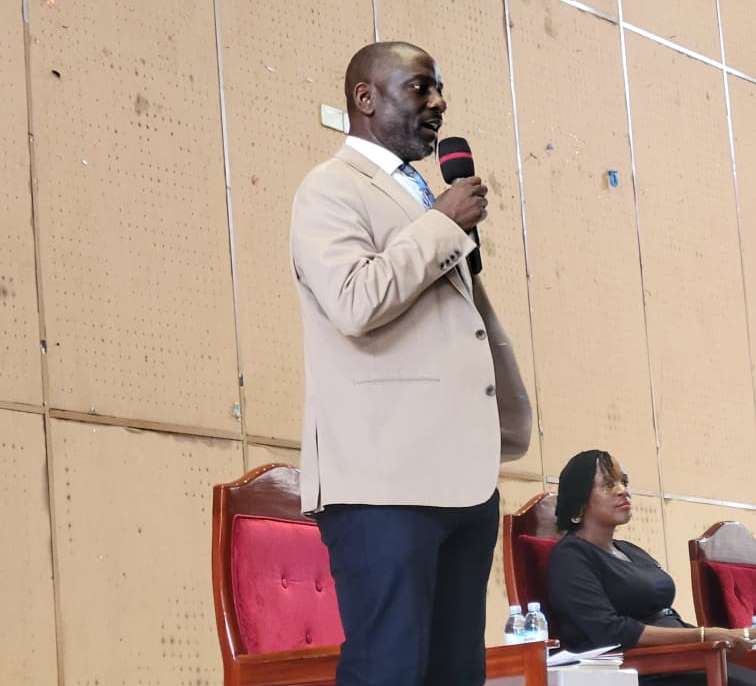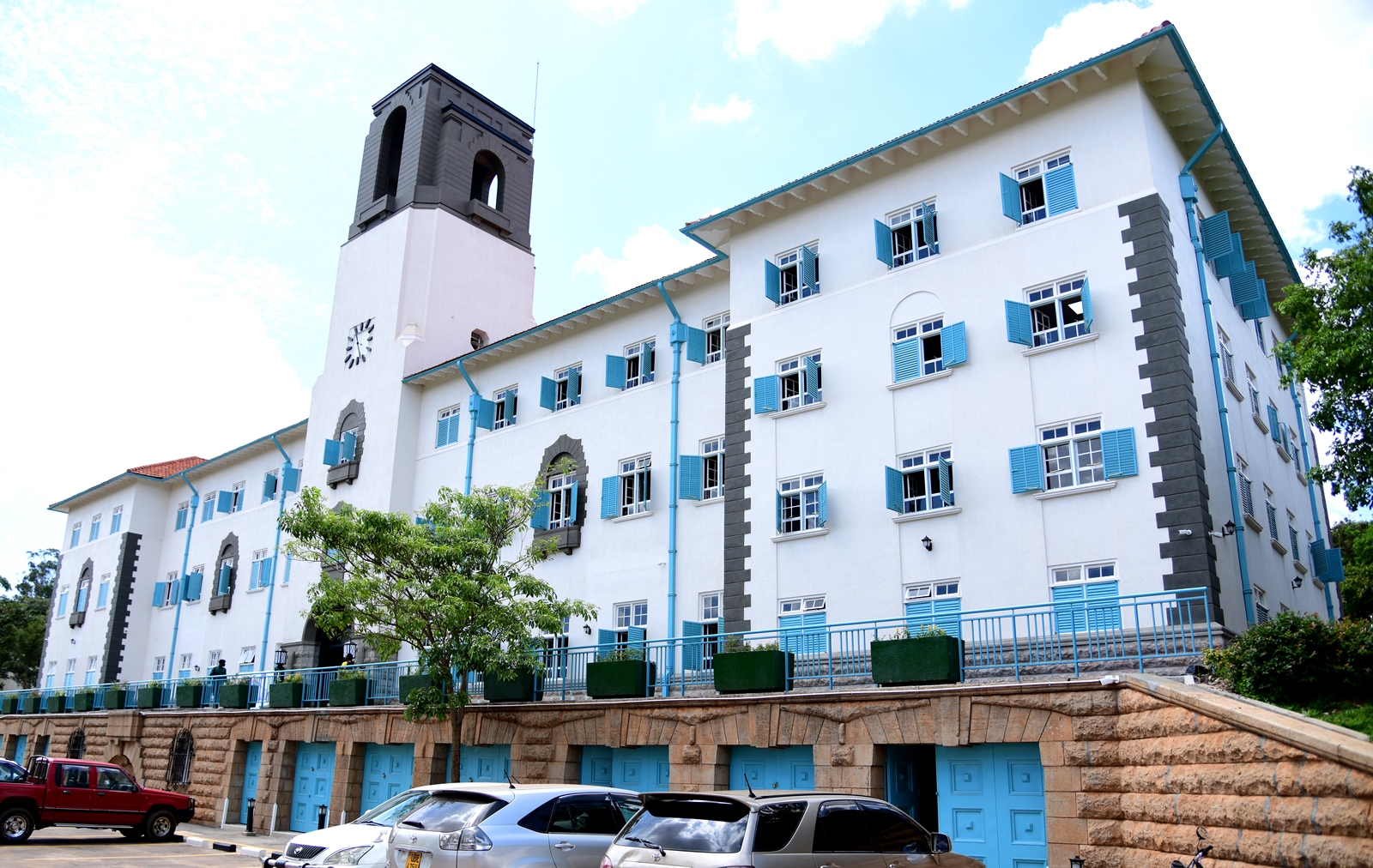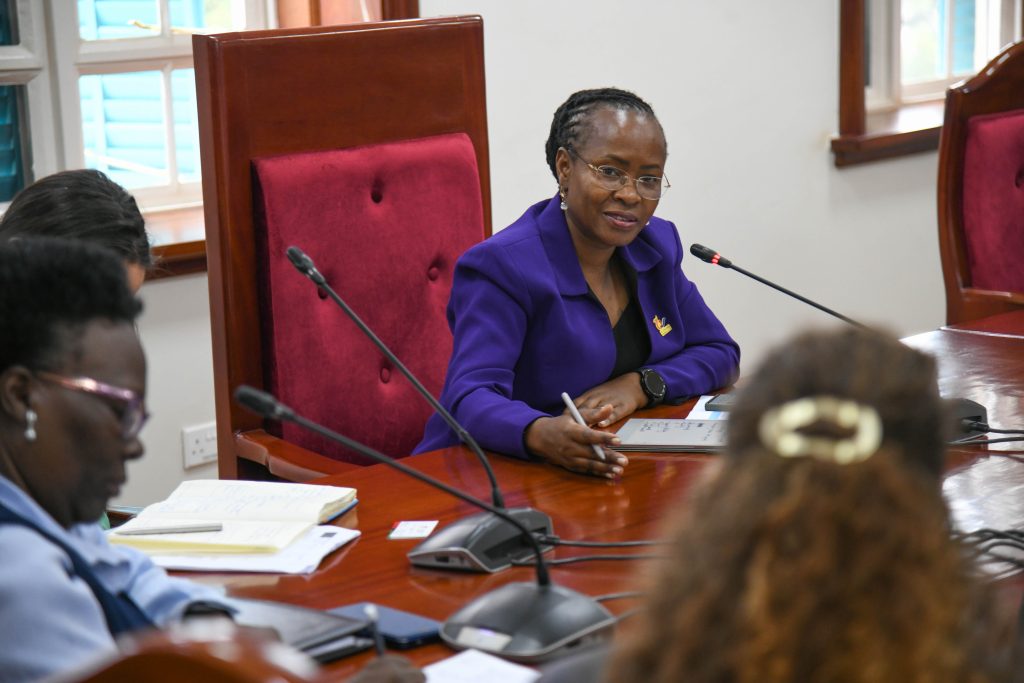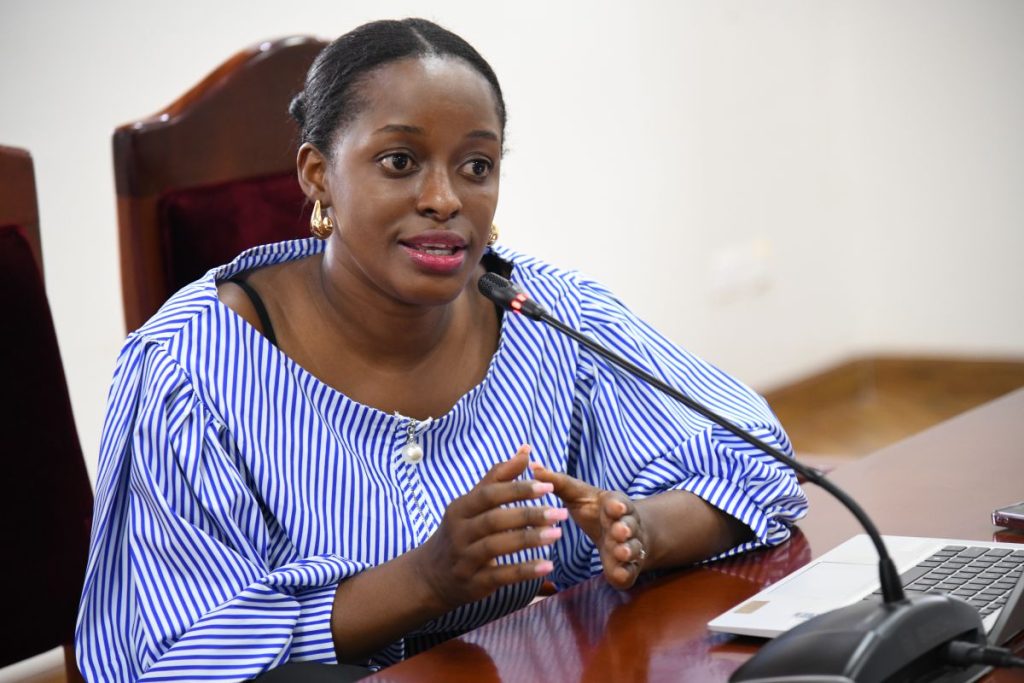The renowned Makerere University Main Hall was filled to capacity as distinguished guests joined the Makerere University Female Scholarship Foundation (FSF) at a colourful gala dinner on Saturday 3rd December 2011 to witness the inauguration of the
The renowned Makerere University Main Hall was filled to capacity as distinguished guests joined the Makerere University Female Scholarship Foundation (FSF) at a colourful gala dinner on Saturday 3rd December 2011 to witness the inauguration of the
Board of Trustees and the launch of the Carnegie Corporation of New York US $1million matching grant, to support the Foundation from 2011 to 2014.
 The Nnabagereka (Queen) of Buganda, Her Royal Highness Sylvia Nagginda Luswata, is the Patron of the Female Scholarship Foundation (FSF) and a strong advocate for the train a woman, train a nation adage. The Nnabagereka who is exceedingly passionate about her role as Patron, visited Makerere University on 21st October 2011 and donated 15 computers to the Gender Mainstreaming Directorate, aimed at increasing access to learning and ICT facilities for the FSF beneficiaries.
The Nnabagereka (Queen) of Buganda, Her Royal Highness Sylvia Nagginda Luswata, is the Patron of the Female Scholarship Foundation (FSF) and a strong advocate for the train a woman, train a nation adage. The Nnabagereka who is exceedingly passionate about her role as Patron, visited Makerere University on 21st October 2011 and donated 15 computers to the Gender Mainstreaming Directorate, aimed at increasing access to learning and ICT facilities for the FSF beneficiaries.
 At the dinner that evening, the Chancellor of Makerere University Professor George Mondo Kagonyera evoking the power of authority entrusted to him inaugurated the Board of Trustees comprising eminent personalities with a wealth of experience needed to take the foundation to a higher level. The cheerful Chancellor then proceeded to adorn each member with the Makerere University Stoll, as a symbol of their inauguration and commission to undertake this noble task.
At the dinner that evening, the Chancellor of Makerere University Professor George Mondo Kagonyera evoking the power of authority entrusted to him inaugurated the Board of Trustees comprising eminent personalities with a wealth of experience needed to take the foundation to a higher level. The cheerful Chancellor then proceeded to adorn each member with the Makerere University Stoll, as a symbol of their inauguration and commission to undertake this noble task.
Dr. William S. Kalema is the Chairperson of the Board of Trustees of the FSF. The members of the Board include: Dr. Thelma Awori, Dr. Katherine Namuddu, Professor Venansius Baryamureeba, Dr. Alex Coutinho, Professor Catherine Odora Hoppers, Ms Diana L. Ofwona, Dr. Charles Mbire, Mr. Ali Mufuriki, Professor Ruth Mukama and Mr. Alfred M. Namoah. Ms. Catherine Kanabahita is the Secretary to the Board of Trustees.
 Giving his acceptance speech, The Chairperson of the Board of Trustees, Dr. William S. Kalema informed the audience that he was honoured and pleased to serve on this board. “We take this responsibility to promote bright, but disadvantaged girls humbly and seriously. We have here an African team from Tanzania, Kenya, Liberia and Uganda. We are ready to commit our time and resources to volunteer our services to the Female Scholarship Foundation,” remarked Dr. Kalema, on behalf of the Board.
Giving his acceptance speech, The Chairperson of the Board of Trustees, Dr. William S. Kalema informed the audience that he was honoured and pleased to serve on this board. “We take this responsibility to promote bright, but disadvantaged girls humbly and seriously. We have here an African team from Tanzania, Kenya, Liberia and Uganda. We are ready to commit our time and resources to volunteer our services to the Female Scholarship Foundation,” remarked Dr. Kalema, on behalf of the Board.
As the Chairperson of the Board of Trustees for the next three years (2011-2014), Dr. William Kalema pledged to ensure that the Foundation is run efficiently and effectively. He added that the Board would focus on increasing enrolment, retention and improving the academic performance of female students at Makerere University with specific emphasis on sciences, and giving priority to applicants from disadvantaged backgrounds and under-represented geographical areas in Uganda.
 The Makerere University Female Scholarship Foundation (FSF) was launched on 20th November 2010 to sustain the Female Scholarship Initiative (FSI) which had supported 691 girls from disadvantaged social-economic backgrounds to access university education.
The Makerere University Female Scholarship Foundation (FSF) was launched on 20th November 2010 to sustain the Female Scholarship Initiative (FSI) which had supported 691 girls from disadvantaged social-economic backgrounds to access university education.
Ms. Catherine Kanabahita, Director, Gender Mainstreaming Directorate, said the Female Scholarship Foundation (FSF) was an effort to consolidate the gains made during the ten-year Carnegie Corporation of New York’s support to the Female Scholarship Initiative (FSI), and to continue addressing the increasing gender and equity needs in access into higher education.
Ms. Kanabahita recognized the presence of Rt. Hon. Professor Apolo Nsibambi, a distinguished alumnus  and first Non-Head-of-State Chancellor of Makerere University, who as the former Prime Minister of the Republic of Uganda launched the Female Scholarship Foundation (FSF) in November 2010. She further applauded Prof. Nsibambi’s support as Prime Minister, which has facilitated the Foundation's growth over the year, leading up to the inauguration of the Board of Trustees on Saturday 3rd December 2011. Ms. Kanabahita also commended the Chairperson of the Makerere University Council, Eng. Dr. Charles Wana-Etyem for hosting the gala dinner, which also marked the Launch of the matching grant from the Carnegie Corporation of New York to support the FSF.
and first Non-Head-of-State Chancellor of Makerere University, who as the former Prime Minister of the Republic of Uganda launched the Female Scholarship Foundation (FSF) in November 2010. She further applauded Prof. Nsibambi’s support as Prime Minister, which has facilitated the Foundation's growth over the year, leading up to the inauguration of the Board of Trustees on Saturday 3rd December 2011. Ms. Kanabahita also commended the Chairperson of the Makerere University Council, Eng. Dr. Charles Wana-Etyem for hosting the gala dinner, which also marked the Launch of the matching grant from the Carnegie Corporation of New York to support the FSF.
 The Acting Vice Chancellor of Makerere University, Professor Venansius Baryamureeba, as he traversed the country had observed that the dire poverty levels especially in Northern Uganda, were a great impediment to the girl-child making it to Makerere University, unless someone lent them a helping hand. “As we gather here this evening, I speak with the renewed hope of a man who has seen the light at the end of the tunnel for the University education of the disadvantaged Girl-Child,” added Professor Baryamureeba.
The Acting Vice Chancellor of Makerere University, Professor Venansius Baryamureeba, as he traversed the country had observed that the dire poverty levels especially in Northern Uganda, were a great impediment to the girl-child making it to Makerere University, unless someone lent them a helping hand. “As we gather here this evening, I speak with the renewed hope of a man who has seen the light at the end of the tunnel for the University education of the disadvantaged Girl-Child,” added Professor Baryamureeba.
Professor Baryamureeba commended the University administration for providing tuition waivers that have benefited 20 female students in the last two consecutive academic years. He also thanked the Carnegie Corporation of New York for sowing the seed, which has benefited 691 girls for the last ten years, and their continued support to provide a matching grant to Makerere University to support FSF from 2011 to 2014.
 Professor Baryamureeba informed the audience that FSF had laid fundraising strategies to enable as many poor and disadvantaged female students as possible, to access University education.
Professor Baryamureeba informed the audience that FSF had laid fundraising strategies to enable as many poor and disadvantaged female students as possible, to access University education.
The strategies include: Setting up an endowment fund using corporate donations, donations from foundations, donations from government, individual donations; setting up named institutional scholarships in the names of those that have either made great contributions or sacrifices or are role models for the girl child; and allowing individuals to sponsor scholarships upfront.
The Guest of Honour at the gala dinner, Rt. Hon. Rebecca Kadaga, the Speaker of Parliament of Uganda  officiated at the hand-over of scholarship certificates to 26 beneficiaries under the Female Scholarship Foundation (FSF) for the Academic year 2011/2012.
officiated at the hand-over of scholarship certificates to 26 beneficiaries under the Female Scholarship Foundation (FSF) for the Academic year 2011/2012.
Rt. Hon. Kadaga requested the innovative Vice Chancellor of Makerere University, Professor Venansius Baryamureeba to improve the facilities of the female students including re-visiting the aspects of their accommodation and learning facilities. She also appealed to the University Administration to explore the possibility of Female Alumni of Makerere University setting up a Fund to support the women in rural areas.
 Focusing on President Julius K. Nyerere’s Equality Call for the Liberation of women, The keynote Speaker at the dinner, Professor Peter Anyang’ Nyongo’, a distinguished alumnus of Makerere University, and Minister of Medical services in the Republic of Kenya reiterated his call for a cultural revolution aimed at ending the servitude of life givers. “The struggle to liberate women should be a social issue, not only left to women’s movements. We also need more men on board to promote the cultural revolution,” emphasized Professor Anyang’ Nyongo.’
Focusing on President Julius K. Nyerere’s Equality Call for the Liberation of women, The keynote Speaker at the dinner, Professor Peter Anyang’ Nyongo’, a distinguished alumnus of Makerere University, and Minister of Medical services in the Republic of Kenya reiterated his call for a cultural revolution aimed at ending the servitude of life givers. “The struggle to liberate women should be a social issue, not only left to women’s movements. We also need more men on board to promote the cultural revolution,” emphasized Professor Anyang’ Nyongo.’
Professor Anyang’ Nyongo’ appealed to the most recent beneficiaries FSF to demonstrate that they indeed deserved this scholarship by concentrating on their  studies and excelling in all aspects of life.
studies and excelling in all aspects of life.
Dfcu Bank, who graciously sponsored the evening’s gala dinner pledged to continue supporting the activities of the Female Scholarship Foundation (FSF). “We shall contribute 10 million shillings per year to FSF. We shall also offer internships to students sponsored under the FSF,” announced Mr. Juma Kisaame, The Bank’s Managing Director.

Ms Pheobe Tucungwire, an FSI alumna who graduated in 2006 with a Bachelor of Science in Computer Science, touched the guest’s hearts during her testimony when she announced that had been making monthly contributions to the Foundation. Emphasing the role of Giving Back, Ms Tucungwire said: “After you have benefited from the FSF, you have the firm belief that no matter how little you earn, the little you give will count a mile in someone’s life.”
Ritah Namisango, Public Relations Office, Makerere University

 Research6 days ago
Research6 days ago
 General1 week ago
General1 week ago
 Humanities & Social Sciences2 weeks ago
Humanities & Social Sciences2 weeks ago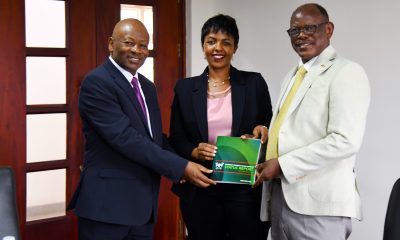
 Health2 weeks ago
Health2 weeks ago
 Health1 week ago
Health1 week ago
